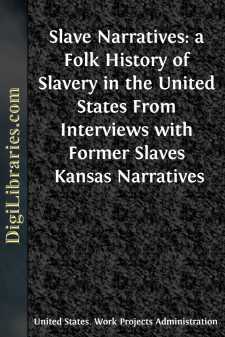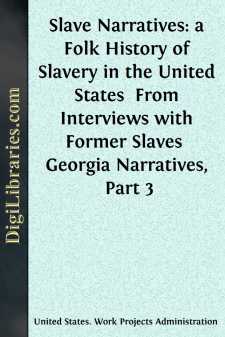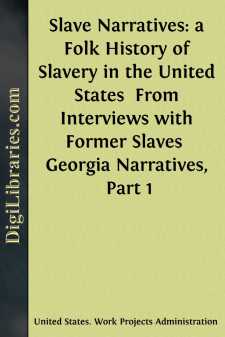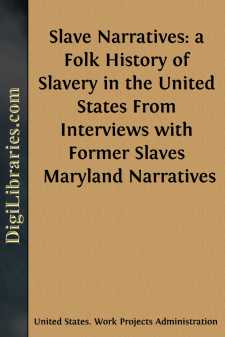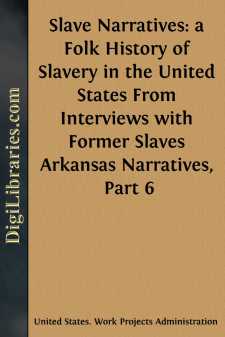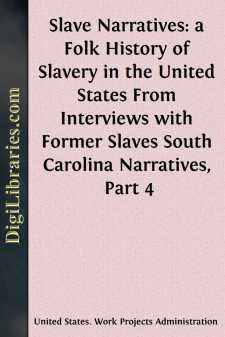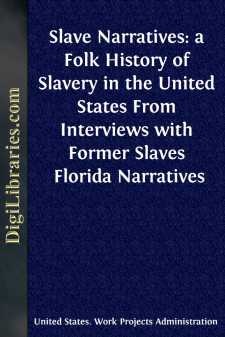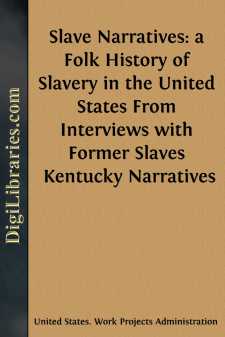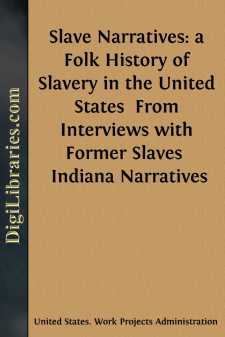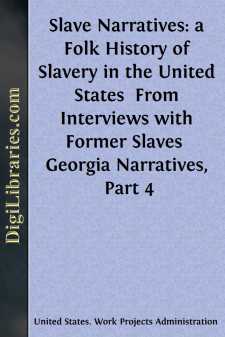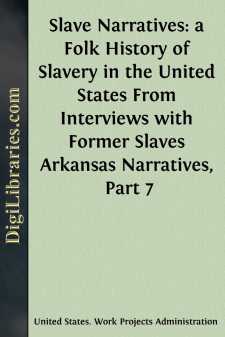Categories
- Antiques & Collectibles 13
- Architecture 36
- Art 48
- Bibles 22
- Biography & Autobiography 813
- Body, Mind & Spirit 142
- Business & Economics 28
- Children's Books 17
- Children's Fiction 14
- Computers 4
- Cooking 94
- Crafts & Hobbies 4
- Drama 346
- Education 46
- Family & Relationships 57
- Fiction 11829
- Games 19
- Gardening 17
- Health & Fitness 34
- History 1377
- House & Home 1
- Humor 147
- Juvenile Fiction 1873
- Juvenile Nonfiction 202
- Language Arts & Disciplines 88
- Law 16
- Literary Collections 686
- Literary Criticism 179
- Mathematics 13
- Medical 41
- Music 40
- Nature 179
- Non-Classifiable 1768
- Performing Arts 7
- Periodicals 1453
- Philosophy 64
- Photography 2
- Poetry 896
- Political Science 203
- Psychology 42
- Reference 154
- Religion 513
- Science 126
- Self-Help 84
- Social Science 81
- Sports & Recreation 34
- Study Aids 3
- Technology & Engineering 59
- Transportation 23
- Travel 463
- True Crime 29
Slave Narratives: a Folk History of Slavery in the United States From Interviews with Former Slaves Kansas Narratives
Description:
Excerpt
THE AMERICAN GUIDE
TOPEKA, KANSAS
EX SLAVE STORY
OTTAWA, KANSAS
BY: Leta Gray (interviewer)
"My name is Clayton Holbert, and I am an ex slave. I am eighty-six years old. I was born and raised in Linn County, Tennessee. My master's name was Pleasant "Ples" Holbert. My master had a fairly large plantation; he had, I imagine, around one hundred slaves."
"I was working the fields during the wind-up of the Civil War. They always had a man in the field to teach the small boys to work, and I was one of the boys. I was learning to plant corn, etc. My father, brother and uncle went to war on the Union side."
"We raised corn, barley, and cotton, and produced all of our living on the plantation. There was no such thing as going to town to buy things. All of our clothing was homespun, our socks were knitted, and everything. We had our looms, and made our own suits, we also had reels, and we carved, spun, and knitted. We always wore yarn socks for winter, which we made. It didn't get cold, in the winter in Tennessee, just a little frost was all. We fixed all of our cotton and wool ourselves."
"For our meat we used to kill fifteen, twenty, or fifty, and sometimes a hundred hogs. We usually had hickory. It was considered the best for smoking meat, when we butchered. Our meat we had then was the finest possible. It had a lot more flavor than that which you get now. If a person ran out of meat, he would go over to his neighbor's house, and borrow or buy meat, we didn't think about going to town. When we wanted fresh meat we or some of the neighbors would kill a hog or sheep, and would divide this, and then when we butchered we would give them part of ours. People were more friendly then then they are now. They have almost lost respect for each other. Now if you would give your neighbor something they would never think of paying it back. You could also borrow wheat or whatever you wanted, and you could pay it back whenever you thrashed."
"We also made our own sorghum, dried our own fruits. We usually dried all of our things as we never heard of such a thing as canning."
"We always had brandy, wine, and cider on hand, and nothing was thought of it. We used to give it to the children even. When we had corn husks, log rolling, etc., we would invite all of the neighbors over, and then we would serve refreshments of wine, brandy or cider."
"We made our own maple syrup from the maple sugar trees. This is a lot better than the refined sugar people have nowdays, and is good for you too. You can't get this now though, except sometimes and it is awfully high priced. On the plantations the slaves usually had a house of their own for their families. They usually built their houses in a circle, so you didn't have to go out doors hardly to go to the house next to you. If you wanted your house away from the rest of the houses, they could build you a house away from the others and separate."
I was never sold, I always had just my one master. When slave owners died, if they had no near relatives to inherit their property, they would 'Will' the slaves their freedom, instead of giving them to someone else....


